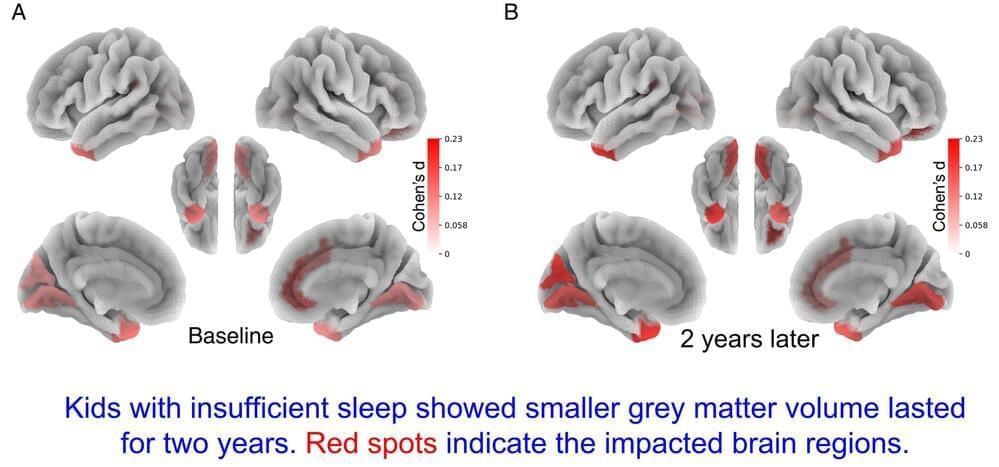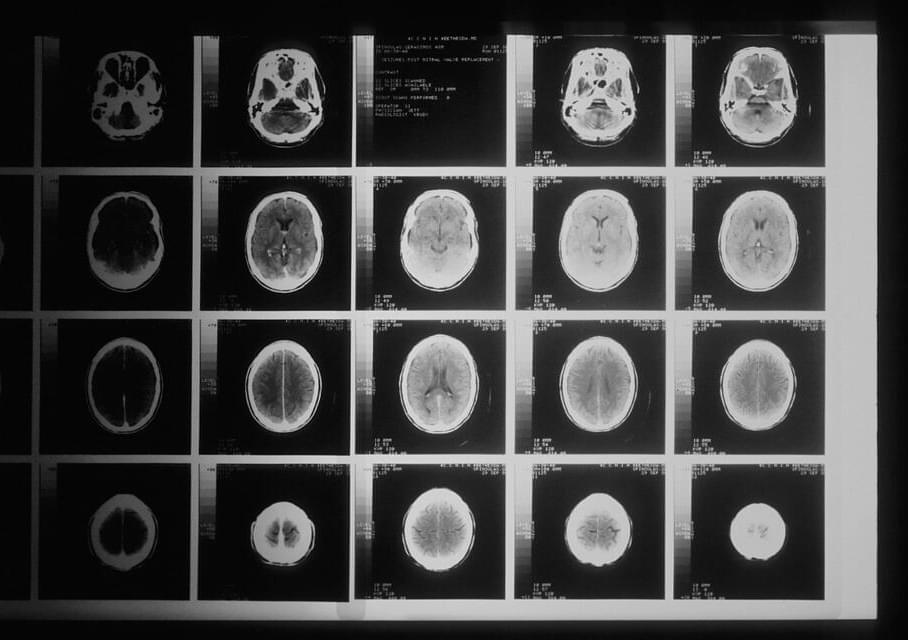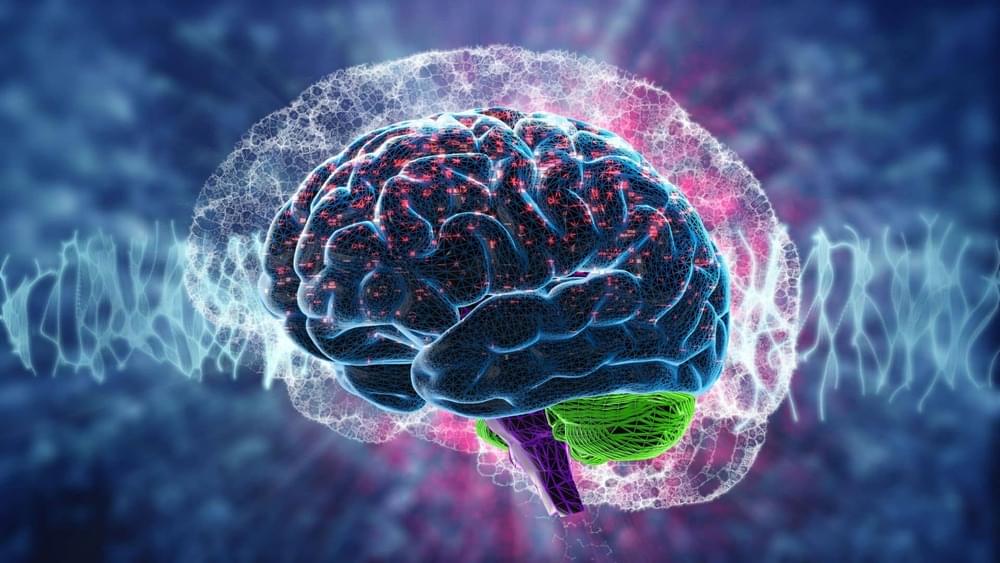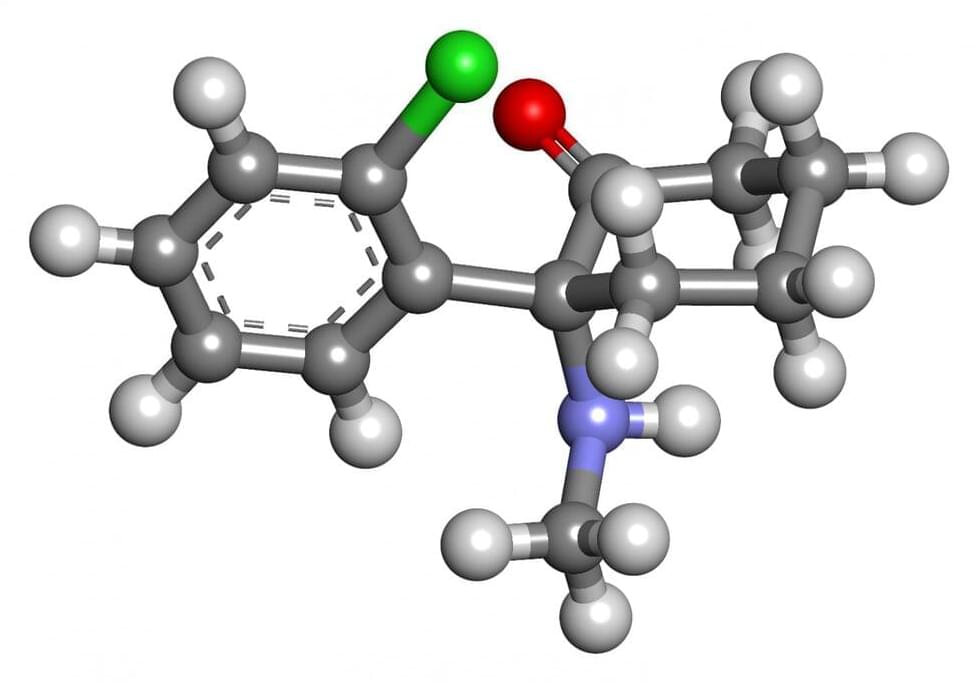Elementary school-age children who get less than nine hours of sleep per night have significant differences in certain brain regions responsible for memory, intelligence and well-being compared to those who get the recommended nine to 12 hours of sleep per night, according to a new study led by University of Maryland School of Medicine (UMSOM) researchers. Such differences correlated with greater mental health problems, like depression, anxiety, and impulsive behaviors, in those who lacked sleep. Inadequate sleep was also linked to cognitive difficulties with memory, problem solving and decision making. The findings were published today in the journal The Lancet Child & Adolescent Health.
The American Academy of Sleep Medicine recommends that children aged six to 12 years of age sleep 9 to 12 hours per night on a regular basis to promote optimal health. Up until now, no studies have examined the long-lasting impact of insufficient sleep on the neurocognitive development of pre-teens.
To conduct the study, the researchers examined data that were collected from more than 8,300 children aged nine to 10 years who were enrolled in the Adolescent Brain Cognitive Development (ABCD) study. They examined MRI images, medical records, and surveys completed by the participants and their parents at the time of enrollment and at a two-year follow-up visit at 11 to 12 years of age. Funded by the National Institutes of Health (NIH), the ABCD study is the largest long-term study of brain development and child health in the U.S.




